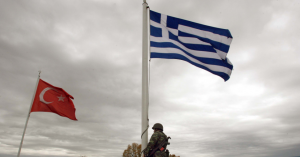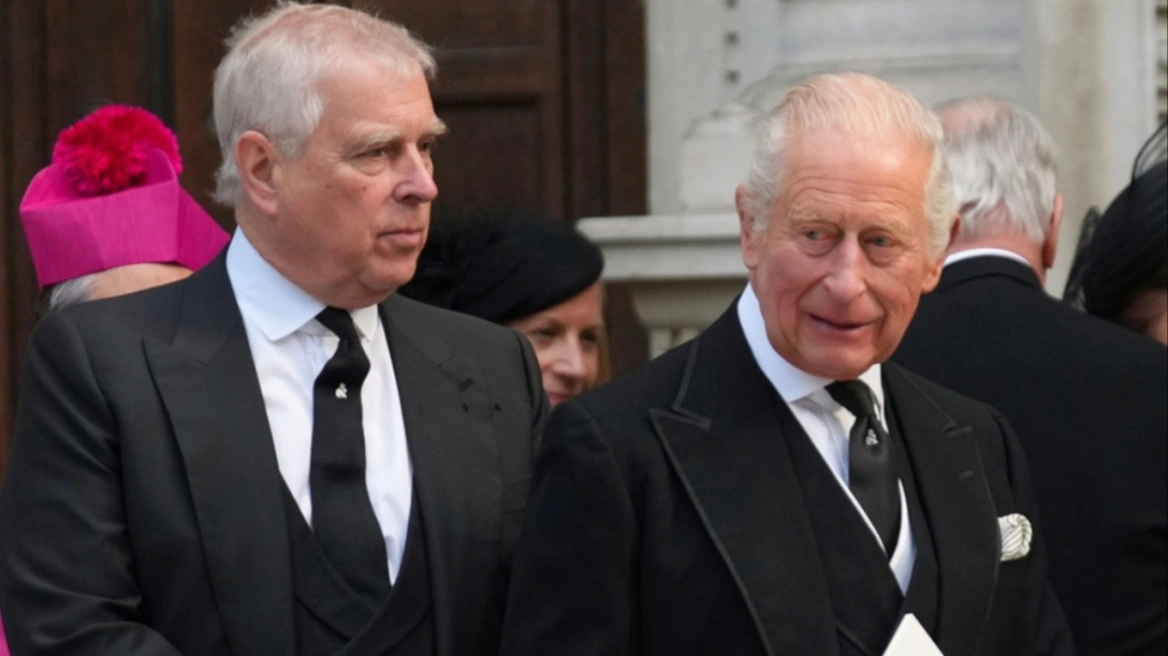The visit of the Turkish President to Athens is of great importance to both Greece and Turkey, as it may be the beginning of a new era of cooperation and mitigation of the conflicts between the two countries.
A great deal has been written and more will be written still. What it is of particular value however, is how each country sees its relations with the other through the official websites of the Foreign Ministries. A useful element for understanding the difference in perspective and focal points between the two countries.
– Turkish Ministry of Foreign Affairs http://www.mfa.gov.tr/relations-between-turkey-and-greece.en.mfa
Relations between Turkey and Greece
A new era has begun in the Turkish-Greek relations as of 1999, marked with the establishment of a variety of dialogue mechanisms such as regular political consultations, exploratory contacts on Aegean Issues, Confidence-Building Measures, High-Level Cooperation Council meetings as well as high-level visits and contacts. Enhancing bilateral relations with Greece in every possible field and the implementation of tangible projects to the benefit of two countries is one of Turkey’s priorities.
In 2010, the High-Level Cooperation Council (HLCC) between Turkey and Greece was set up. Co-chaired by the Prime Ministers of both countries and under the coordination of Foreign Ministers, the HLCC is envisaged to convene in Turkey and Greece alternately. The HLCC aims at addressing various issues of Turkish-Greek relations at high level, thus contributing to progress in existing and prospective areas of cooperation, and rendering an “institutional” ground for Turkish-Greek relations. Four HLCC meetings have so far been held. The first meeting in Athens on May 14 and 15, 2010; the second meeting in Istanbul on March 4, 2013; the third meeting in Athens on December 6, 2014, and the last one in Izmir on March 8, 2016. 54 agreements/protocols/MoUs were signed during those meetings. Business Fora are also being held on the side-lines of the HLCC Meetings.
High-level visits have also picked up momentum over the last couple of years. Upon the invitation of President Mr. Erdoğan, Greek President Mr. Pavlopoulos visited İstanbul to attend the Black Sea Economic Cooperation (BSEC) Summit on May 22, 2017. Although it was not an official visit, it was still the first visit at the level of heads of state between Turkey and Greece since the official visit of the then President Celal Bayar to Greece in 1952. Prime Minister Mr. Yıldırım paid a working visit to Greece on 19 June 2017, upon the invitation of his counterpart Mr. Tsipras. Prime Minister Mr. Yıldırım after completing his programme in Athens visited Western Thrace to meet with the Turkish Minority.
Regular political consultations are held between the Foreign Ministries at the level of Undersecretary/Secretary General. The last political consultations were held in Athens on June 9, 2017.
Commercial and economic relations with Greece have also gained momentum since 1999 along the lines of positive developments witnessed in bilateral political relations. The establishment of the HLCC mechanism in 2010 in particular has also paved the way for a substantial increase in commercial relations. The bilateral trade volume thus doubled between 2010 and 2014, reaching 5.6 billion USD by the end of 2014. However, according to the Turkish data, the bilateral trade volume in 2016 totalled 2.6 billion USD. In 2012, during the Second HLCC Meeting, 10 billion USD of trade volume, was declared as a common goal and both sides are committed to exploring ways and means to reach this target.
The stock of direct investments from Greece reached 6.1 billion USD by the end of 2016. Greek investors, apart from the financial sector, operate in information technology (IT), agricultural applications, packaging, plastics, pharmacy, cosmetics, fisheries, tourism and construction sectors in our country.
The stock of direct Turkish investments in Greece, including the investments via the other European countries amounts to approximately 500 million USD. Turkish investors mostly focus on investing in marinas, ports and the overall tourism sector in Greece. Furthermore, Ziraat Bank has branches in Athens, Xanthi, Komotini and Rhodes.
Transport is another field where both sides are willing to intensify their cooperation. Currently, Turkish airline operators are conducting 49 flights a week between Turkey and Greece. The implementation of projects regarding the Izmir-Thessaloniki Ro-Pax ferry line and the high-speed train link between Istanbul and Thessaloniki will pave the way for an intensified cooperation in maritime and railroad transport between Turkey and Greece.
Tourism is one of the promising fields of cooperation between the two countries. In 2016, 785.905 tourists from Turkey visited Greece. In the same year, Turkey attracted 593.150 tourists from Greece. The facilitated visa procedure for visiting seven Greek islands close to Turkish shores has been in effect since 2012. It has also been instrumental in the increase of the number of Turkish tourists visiting Greece.
There are some issues between Turkey and Greece concerning the Aegean Sea. For detailed information, visit Home Foreign Policy Main Issues Maritime Issues.
– Greek Ministry of Foreign Affairs http://www.mfa.gr/en/blog/greece-bilateral-relations/turkey/
Greece Turkey Political Relations
Since the establishment of the modern Greek state (1830) Greek-Turkish relations have been through many phases; times of conflict, tension, calm and cooperation.
The Treaty of Lausanne brought to an end a decade of war that was very painful for Hellenism in Turkey. The agreements reached in the Treaty of Lausanne – including a mandatory population exchange – constitute the basic framework governing the relations and territorial status of the two countries, but also of the status of the Muslim minority in Thrace and that of minorities in Turkey.
The 1930s saw inspired efforts by the leaders of the two countries – Eleftherios Venizelos and Mustafa Kemal Ataturk – to establish relations of trust between Greece and Turkey.
However, from the end of WWII until the early 1970s, relations between the two countries were dominated by the Cyprus issue and the persecution of the Greek minority in Turkey, culminating in the events of 1955, which resulted in the latter’s decimation.
The early 1970s saw the beginning of an extended phase of tension in Greek-Turkish relations that has lasted until today, based on two main axes:
The attempt by Turkey to revise and change the territorial status quo established by the Treaty of Lausanne and other international treaties, as well as the legal status of maritime zones and airspace deriving from international law, by raising disputes and claims against the sovereignty, the sovereign rights and the jurisdiction of Greece.
The Turkish invasion of Cyprus in July 1974 and the subsequent Turkish occupation of the northern part of Cyprus, which continues to this day.
Since then, relations between the two countries have at times been on the brink of armed conflict (crisis of March 1987 and Imia crisis of January 1996), due to Turkish contentions and claims that are groundless and in violation of the international law.
In 1999 – in the light of chronic problems and on the occasion of two disastrous earthquakes that hit the two countries – a process of Greek-Turkish rapprochement was initiated, running, on a bilateral level, along three main axes:
The development of bilateral cooperation in soft power policy areas; that is, dispute-free sectors: economy and trade, tourism, culture, civil society etc.
The easing of tensions – particularly military – through the improvement of the psychological climate and contacts between the armed forces of the two countries via the progressive adoption of confidence-building measures.
Exploring, through rounds of exploratory contacts, the potential for an agreed settlement of the issue of the delimitation of the continental shelf.
The rapprochement process has also been expressed through firm support for Turkey’s European perspective.
In October 2009, an effort has been initiated so as to impart new momentum to the rapprochement process. To this end, a new mechanism was set up for promoting and structuring cooperation between the two countries in soft power policy areas: the High-Level Cooperation Council (HLCC), which was inaugurated during Turkish Prime Minister’s visit to Athens on 14 May 2010. More details on the HLCC are listed below.
Greece has always been making systematic efforts towards the normalization of bilateral relations with Turkey. In this context, the Greek Government, right after the failed attempted coup in the neighboring country, in July 15, 2016, has expressed its support to the democratically elected government, expressing, at the same time, her full support to the struggle of the Turkish people for democratic principles and the rule of law.
The second session of the High-Level Cooperation Council was held in Istanbul, on 4 March 2013, co-chaired by the Prime Ministers of both countries. Twenty-five bilateral agreements were signed providing for cooperation in the fields of health, tourism, prevention of illegal migration, sports, female entrepreneurship etc.
The third session of the High-Level Cooperation Council was held in Athens, on 5-6 December 2014. Bilateral meetings between the two countries’ participating Ministers took place and a Joint Declaration was signed by the Prime Ministers of Greece and Turkey. A Greek – Turkish Business Forum was also organized.
Source: balkaneu.com
Ask me anything
Explore related questions





